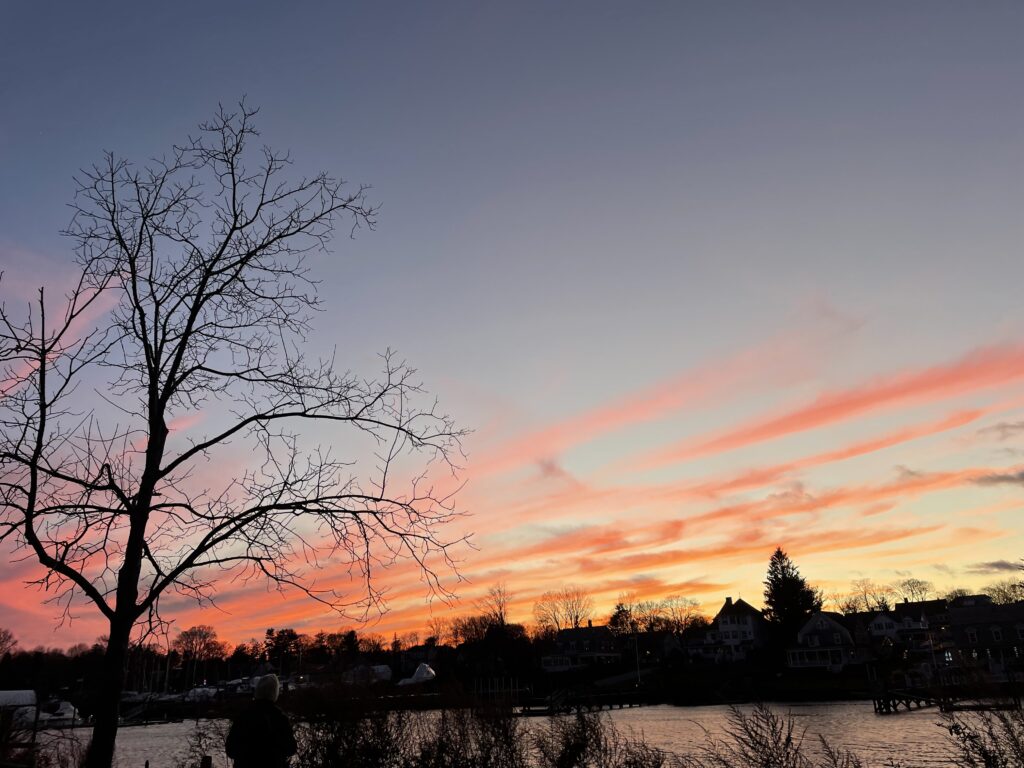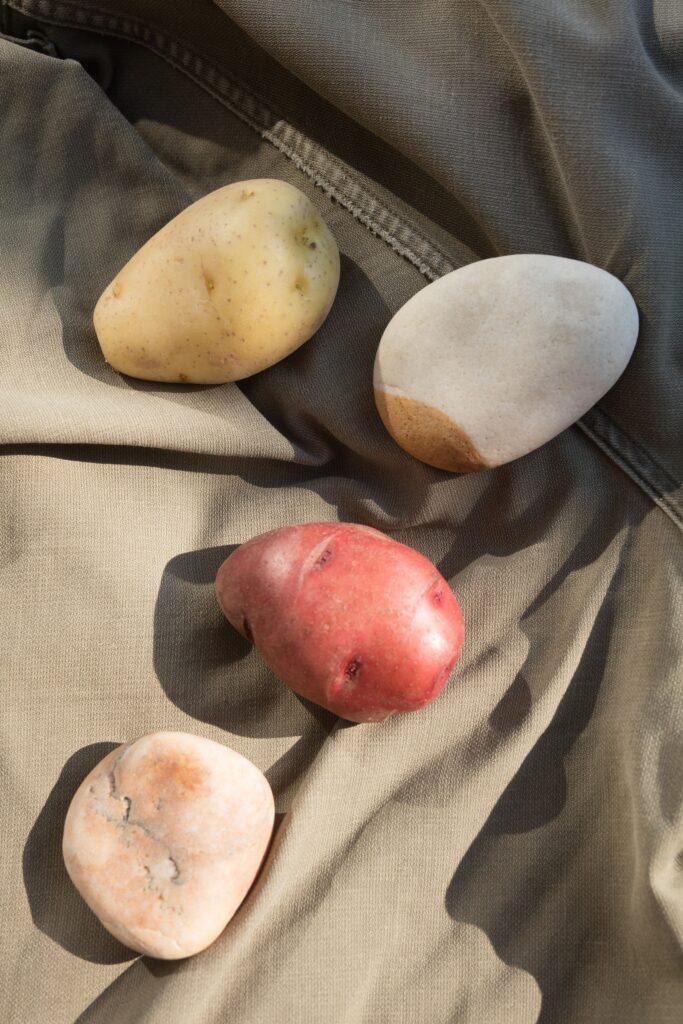The holidays are so full and strange, how do you put your finger on them? (They’re like angels, amorphous, without gender, age, bodily materiality.) Not knowing how to celebrate – what do Santa Claus and Jesus have to do with each other? – we languish, spin longrunning sentences over tea, segue from the faux pas of old racist boss at the holiday party to best of Wicked to why a mother didn’t keep her kid from eating cake off a slip of paper on the Penn Station floor. The thin veneer of civilization mentioned – it rubs off in uncivilized holiday travel –then we languish more, ferret out a few gray hairs among sisters, watch a tear form and magnify a gorgeous eye, then silently make its lonely trace down a soft cheek to the corner of a lip. Wonder again about that baby Jesú. Some of us run out to see the only positive connection, plump infants, bully infants in gold leaf on Italian medieval paintings – then come back to languish, it now obvious it is one very long sentence where the gossip keeps getting sharper, tarter – and the bonds of love more velvet. Keep talking, lest we lose our values and become self-branded products, milk and makeup brands ourselves. As a new world begs to be born but can’t figure out how the hell to do it. We keep talking, we’ve read 1001 Nights; as long as we don’t use the word “broken” — the most broken word ever –we’ll be spellbound together.
-
Recent Posts
Follow me on Twitter
My TweetsArchives
- March 2025
- February 2025
- January 2025
- December 2024
- November 2024
- October 2024
- September 2024
- August 2024
- July 2024
- May 2024
- April 2024
- March 2024
- February 2024
- January 2024
- December 2023
- November 2023
- October 2023
- September 2023
- August 2023
- July 2023
- June 2023
- May 2023
- April 2023
- March 2023
- February 2023
- January 2023
- December 2022
- November 2022
- October 2022
- September 2022
- August 2022
- July 2022
- June 2022
- May 2022
- April 2022
- March 2022
- February 2022
- January 2022
- December 2021
- November 2021
- October 2021
- September 2021
- August 2021
- July 2021
- June 2021
- May 2021
- April 2021
- March 2021
- February 2021
- January 2021
- December 2020
- November 2020
- October 2020
- September 2020
- August 2020
- July 2020
- June 2020
- May 2020
- April 2020
- March 2020
- February 2020
- January 2020
- December 2019
- October 2019
- September 2019
- August 2019
- July 2019
- June 2019
- May 2019
- April 2019
- March 2019
- February 2019
- January 2019
- December 2018
- November 2018
- October 2018
- September 2018
- August 2018
- July 2018
- June 2018
- May 2018
- April 2018
- March 2018
- February 2018
- January 2018
- December 2017
- November 2017
- October 2017
- September 2017
- August 2017
- July 2017
- June 2017
- May 2017
- April 2017
- March 2017
- February 2017
- January 2017
- December 2016
- November 2016
- October 2016
- September 2016
- August 2016
- July 2016
- June 2016
- May 2016
- April 2016
- March 2016
- February 2016
- January 2016
- December 2015
- November 2015
- October 2015
- September 2015
- August 2015
- July 2015
- June 2015
- May 2015
- April 2015
- March 2015
- February 2015
- January 2015
- December 2014
- November 2014
- October 2014
- September 2014
- August 2014
- July 2014
- June 2014
- May 2014






